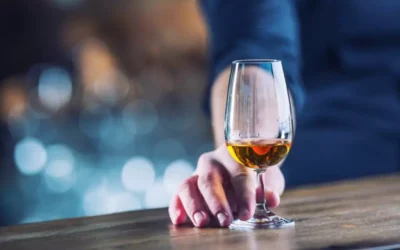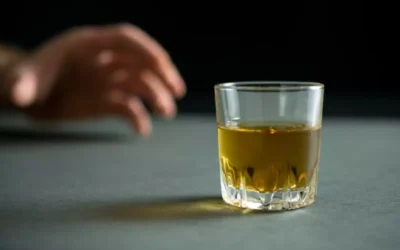What Happens When Alcohol and Medications Interact
Content
This is why you need to consult your doctor and take their informed advice about drinking while on blood thinners seriously. It helps to convert fibrinogen into fibrin, a protein that forms a mesh-like structure that helps stop bleeding. It also activates other proteins that are involved in the clotting process.

That’s why before starting any blood-thinning medication, it is important to speak honestly with your doctor about your alcohol consumption. They will advise you as to whether blood thinners and alcohol any amount of alcohol is safe to consume while on the medication. Drinking alcohol is also not recommended before surgery because of its blood-thinning effects.
When to contact a doctor
The most common uses of blood thinners are to prevent deep vein thrombosis (blood clot in the leg or the veins). If this condition is left without treatment, it may develop in a life-threatening event called a pulmonary embolism (PE), caused by fragments of clots passing through the heart. Certain internal clots that can be attributed to aging can be harmful to health, and BTs are usually recommended to preserve blood fluidity.
- It can make your blood too thin and lead to hemorrhages, stroke, and if not treated, death.
- It’s important to tell all your health care professionals that you are taking warfarin.
- Your healthcare provider also prescribes you the correct dosage for you depending on a number of factors.
- Call anytime to speak to an admissions specialist or quickly verify your insurance benefits online now.
Substituting medications would disrupt this balance as there would be no way to track and manage it. Consuming ethanol can cause severe complications in the long run. Apart from its many disastrous effects on various systems of the body, ethanol also damages the liver and reduces its ability to produce clotting factors. However, blood clots can create problems when they form in or travel to the wrong places in the body, such as in an artery that supplies oxygen to the heart and brain. Just 1-2 units of alcohol can thin your blood by reducing the number of platelets and making them less sticky, which impacts your body’s blood clotting ability. Before we dive into how alcohol thins your blood, it’s important to note what is considered moderate and heavy drinking.
Using Other Medicines
However, there is no such thing as completely safe drinking, so if you have any concerns about heart health, it is better to avoid drinking. This is especially true for those who have a family history of heart disease or blood disorders, or who are on any kind of prescription medication, including blood thinners. With that being said, it’s also important to clarify that alcohol is not a replacement for blood thinners.
- The effect of warfarin must be monitored carefully with blood testing.
- Alcohol can increase the risk of bleeding when taken with blood thinners.
- If your doctor has prescribed warfarin, the foods you eat can affect how well your blood thinner works for you.
We want to give recovering addicts the tools to return to the outside world completely substance-free and successful. Since blood thinners and alcohol are both anticoagulants, taking them together can cause serious issues. Light drinking (one or two drinks) can lower your blood pressure, but that doesn’t mean it’s good for you. Alcohol doesn’t lower your blood pressure by a significant amount. Many of the studies that make this claim do not consider other lifestyle choices, like diet and exercise, which have a much bigger impact on blood pressure. However, that does not mean that drinking is healthy, nor should you use alcohol to manage your blood pressure.
Warfarin Interacts With Other Medications
In fact, most blood-thinning medications will specifically advise against mixing them with alcohol. Blood thinners can be dangerous, increasing your risk of severe bleeding during an accident or with an injury. Their use must be carefully monitored to ensure that the blood does not become too thin. People taking blood thinners with reduced liver function may accumulate more medication in their bloodstream.

When you get hurt, blood cells called platelets gather at the injury site and form a blood clot. Clotting factors are also released from platelets that help form a mesh to form the plug to close the wound. It may be OK to mix Brilinta and alcohol with the permission of your doctor; however, it generally should be avoided. Brilinta is often prescribed with aspirin, increasing the risk of bleeding even more when alcohol is used. Mixing Pradaxa and alcohol has significant effects, as it increases the risk that bleeding will occur by boosting the effects of the Pradaxa. You should not mix Pradaxa and alcohol unless your doctor has specifically said this is OK.
Does alcohol thin your blood?
Your doctor will take into account your health history, age, weight and kidney and liver function before determining which blood thinner might work best for you. It’s important to tell all your health care professionals that you are taking warfarin. If you are having surgery, dental work or other medical procedures, you may need to stop taking warfarin.
If you have high blood pressure, drinking many days in a row or drinking a lot in one setting are both very dangerous and can even be deadly. Elevated blood pressure places extra stress on the heart and increases https://ecosoberhouse.com/article/what-is-a-high-functioning-alcoholic/ the chances of heart attack, stroke and heart failure. Yes, alcohol can act as a blood thinner to an extent, which is why it can have a negative effect when too much is consumed with blood thinner medications.
